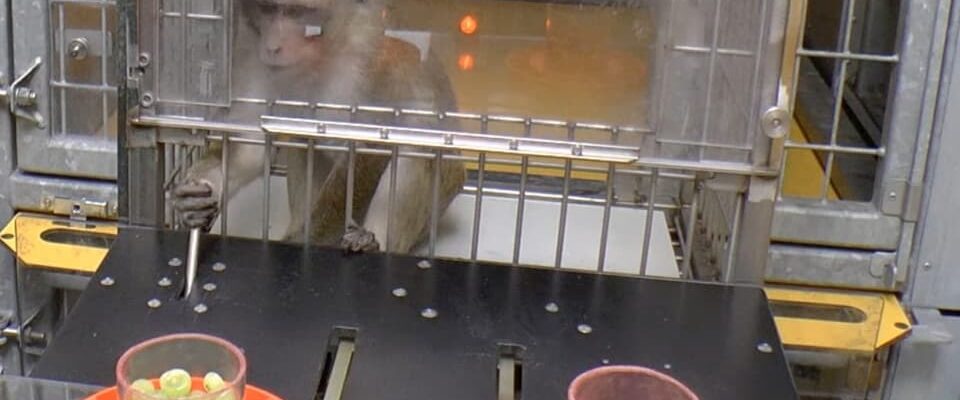Contents
We humans have a sense of justice: we react indignantly to unfair behavior and monkeys react in exactly the same way. But does that mean that monkeys also have a sense of justice? Probably not, says a new study.
This experiment by a primate researcher went viral on YouTube:Two capuchin monkeys are given the same task of giving a researcher a pebble. In return there is a reward. The first monkey gets a piece of boring cucumber, but sees that the second one is rewarded with a delicious, sweet grape.
When the monkey gets only cucumber the second time, he throws the piece of cucumber back to the researcher – apparently outraged by this unequal treatment.
The audience in the video laughs in amusement, the primate researcher has vividly proved his thesis: monkeys have a sense of justice.
The relationship to man
The video is now a few years old, but the monkeys’ sense of justice stuck with many people who weren’t doing research in this area. Stefanie Keupp, research associate at the German Primate Center in Göttingen, is more skeptical: “The claim that monkeys have a sense of justice goes hand in hand with quite a few psychological assumptions. I’m not convinced that monkeys actually bring these with them.” She believes much more that the monkeys were disappointed in the experimenter.
Legend:
In the experiment, a long-tailed macaque (Macaca fascicularis) uses a lever to be rewarded. In the red carousels, high-value rewards (grape) and low-value rewards (hot pepper) are presented. When a human gives the monkey hot peppers, they react with frustration, but not when the reward is automatically given.
Jana Wilken / Rowan Titchener / DPZ
Keupp and other researchers therefore conducted an experiment similar to the one in the YouTube video, but focused on the relationship between the monkey and the experimenter. Her thesis: The monkey expects the experimenter, whom he has known from previous interactions, to treat him well and give him the better reward. If this is not the case, he is disappointed and therefore does not accept the reward.
human versus machine
To test this disappointment thesis, the team used a trick: instead of a human, the twelve test macaques received the reward from a machine in half of the tests.
And indeed: If the monkeys received the unpopular food from a human, they reacted disappointed. In this case, they refused the bad feed much more often than when it came from the machine.
You’ve never seen a better treated monkey share anything.
For Stefanie Keupp, this experiment shows that the behavior of monkeys is shaped by relationships. In these they can be disappointed – just like us humans too. However, monkeys and humans would not share other human behaviors: “For example, you have never seen a better treated monkey who would have shared something.” However, this change of perspective would be crucial in order to demonstrate a moral understanding: “If I feel unfairly treated because I get less, then I have to understand that the other gets more, is aware of it and therefore also feels injustice.”
Monkeys react disappointed when they are treated unfairly by their counterparts. Assuming that they have a sense of justice is pure speculation for the researchers.
